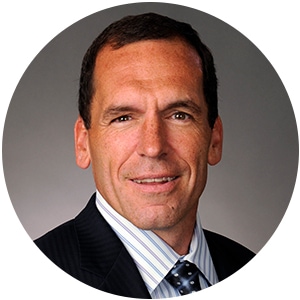Peter Cherecwich, president of Corporate and Institutional Services at Northern Trust, talks about how data is impacting the custody business.

Global Finance: What opportunities do you see coming for the global custody business?
Peter Cherecwich: Those in the financial industry will continue to need more information and transparency about everything they are investing in and own. The ability to understand risk in their portfolios is driven by the ability to slice and dice information and present it in as logical a format as possible.
One example is the foreign exchange process. We have launched a new foreign exchange offering that is based on a technological platform called BEx, which enables us to report, down to the millisecond, exactly when every foreign exchange transaction was executed and to compare that execution to all the available market quotes at the same time.
GF: Other than information, what are some other opportunities?
Cherecwich: One of the trends happening in the marketplace is that more assest owners are also asset managers—such as pension plans and sovereign wealth funds. We are working to create a product that provides data for the investment office of an asset owner to enable better investment decision-making.
Take a private equity fund: It would get valued every quarter, and you would get a statement from a general partner that says shares are worth “x.” If you are a custodian, you put that into the system, and that becomes the new value of the private equity holding. If you want to understand the value every day, then you need to assign a proxy to that private equity holding. And you would want to change that value every day to guide your own investment decisions.
GF: Are you seeing more demand for operational efficiency?
Cherecwich: Absolutely, across the whole industry. If you sit back and think about it, fees are going down across the board, and there is a focus on costs. The reality is that when plans are earning 10% or 12% a year, no one really cares about an extra few basis points in cost. When you’re down to 4% or 5%, suddenly that’s a big deal. Everyone is focused on it across the life cycle of asset servicing—and that goes in terms of what you are paying the asset managers, what you’re doing in-house, the cost of infrastructure and, frankly, what your custodians and administrators are charging you.
GF: What are some of the challenges you are facing?
Cherecwich: Combining operational efficiency with feature function: That’s not the easiest thing in the world, and you do need some scale and capital behind you to do so.
The other challenge is around data and data consistency. If you take private equity, for example, general partners will send data to us that are all different. The only way to get the information is to go through it and read the documents. We built a better product on the general partner side: an application on blockchain that fundamentally automates much of the process for private equity investments.
GF: Is there any connection between the current political environment and how you move forward with your business?
Cherecwich: Our biggest concern is our ability to understand where regulations are going and what the rules of the road are. We are operating now with the assumption [due to Brexit] that we will need a new European bank. Just like markets, we deal much better in environments of certainty.



